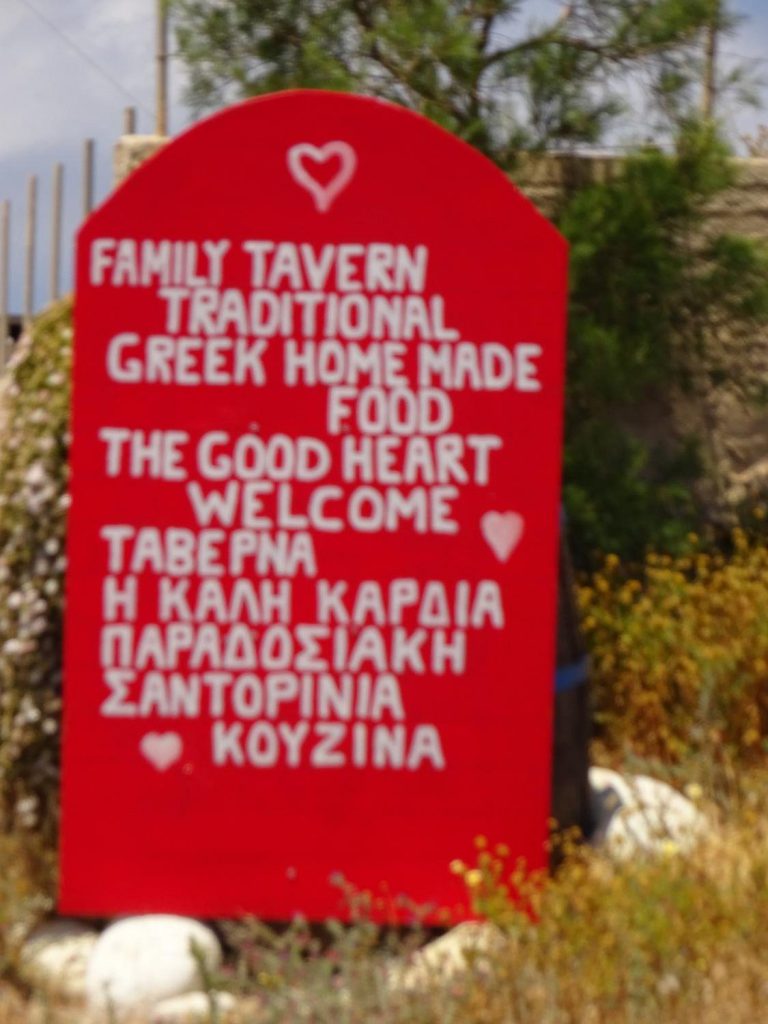
For many years now, I have been fascinated with the English word used in the New Testament called ‘Mind’.
Since I am not a Greek scholar, until now my research has been only a surface treatment of this topic, because I have been both too busy, and honestly too academically lazy to dig into this topic and give it a fair treatment. My premise is this: Since there have been wonderful developments in the mental health care profession, and I serve Almighty God, the creator of the human mind, and He clearly states.
2 Peter 1:3 (ESV) His divine power has granted to us all things that pertain to life and godliness, through the knowledge of him who called us to his own glory and excellence,
The recurring thought that occurs to me over the years, that God MUST have already given us everything we need to provide mental health care to His people, and what He has given must be clearly defined in His Word so we can receive it.
2 Peter 1:4 by which he has granted to us his precious and very great promises, so that through them you may become partakers of the divine nature, having escaped from the corruption that is in the world because of sinful desire.
So, I have been thinking: “What Bible promises refer to the human mind?.” Until this weekend, preliminary research proved too daunting, but a pastor friend of mine introduced me to AI while hosting me on his television show, and Grok and I will surely become friends, as Grok takes much of the bull work out of study, and provides quick answers to often complex questions. So, lets see how Grok answers the following question:
-
kardia (καρδία) – Historical trivia, there is an island in Greece named Kardia, from this very word, the Greek word for Heart:
 Clearly the Greek residents understand its meaning, by this cafe sign?
Clearly the Greek residents understand its meaning, by this cafe sign?  Often translated as “heart,” but can refer to the mind or the seat of intellectual activity. It’s used in contexts where understanding or thought is involved. Example: Matt 18: 35 “MyheavenlyFatherwillalsodothesametoyou, ifeachofyoudoesnotforgivehisbrotherfromyourheart.”
Often translated as “heart,” but can refer to the mind or the seat of intellectual activity. It’s used in contexts where understanding or thought is involved. Example: Matt 18: 35 “MyheavenlyFatherwillalsodothesametoyou, ifeachofyoudoesnotforgivehisbrotherfromyourheart.”
-
ennoia (ἔννοια) – This term means “thought” or “mind” in the sense of intent or purpose. It appears in 1 Peter 4:1 where it’s used to urge believers to have the same intent or mindset. Examples:
-
Hebrews 4:12 – “For the word of God is living and active, sharper than any two-edged sword, piercing to the division of soul and of spirit, of joints and of marrow, and discerning the thoughts and intentions of the heart.” Here, ennoia is translated as “intents” or “intentions.”
-
1 Peter 4:1 – “Since therefore Christ suffered in the flesh, arm yourselves with the same way of thinking, for whoever has suffered in the flesh has ceased from sin.” In this verse, ennoia is translated as “mind” or “way of thinking.”
-
-
gnome (γνώμη) – Refers to “mind” in terms of purpose, opinion, or judgment. Examples include Revelation 17:13 and Philemon 1:14.Examples:Acts 20:3 – “And there he spent three months. And when the Jews laid wait for him, as he was about to sail into Syria, he purposed to return through Macedonia.” Here, “gnome” translates to “purposed.”1 Corinthians 1:10 – “Now I beseech you, brethren, by the name of our Lord Jesus Christ, that ye all speak the same thing, and that there be no divisions among you; but that ye be perfectly joined together in the same mind and in the same judgment.” In this verse, “gnome” is translated as “judgment.”1 Corinthians 7:25 – “Now concerning virgins I have no commandment of the Lord: yet I give my judgment, as one that hath obtained mercy of the Lord to be faithful.” Here, “gnome” refers to “judgment.”1 Corinthians 7:40 – “But she is happier if she so abide, after my judgment: and I think also that I have the Spirit of God.” Again, “gnome” is translated as “judgment.”2 Corinthians 8:10 – “And herein I give my advice: for this is expedient for you, who have begun before, not only to do, but also to be forward a year ago.” Here, “gnome” is translated as “advice.”Philemon 1:14 – “But without thy mind would I do nothing; that thy benefit should not be as it were of necessity, but willingly.” In this case, “gnome” is translated as “mind.”Revelation 17:13 – “These have one mind, and shall give their power and strength unto the beast.” Here, “gnome” is translated as “mind.”Revelation 17:17 – “For God hath put in their hearts to fulfil his will, and to agree, and give their kingdom unto the beast, until the words of God shall be fulfilled.” The word “agree” in this verse represents “gnome.”These verses give a sense of how “gnome” is used in different contexts to convey opinions, judgments, or purposes within the New Testament
4. noema (νόημα) – This word is used for the mind in the sense of thought processes or mental perception. It’s found in contexts like 2 Corinthians 3:14, where it discusses the spiritual blindness of Israel, and the work of satan upon the human mind: Examples:
-
2 Corinthians 2:11 (KJV) – “Lest Satan should get an advantage of us: for we are not ignorant of his devices.” (νοήματα in Greek, referring to Satan’s schemes or devices.)
-
2 Corinthians 3:14 (KJV) – “But their minds were blinded: for until this day remaineth the same vail untaken away in the reading of the old testament; which vail is done away in Christ.” (νοήματα, here used to indicate the minds of the people being hardened.)
-
2 Corinthians 4:4 (KJV) – “In whom the god of this world hath blinded the minds of them which believe not, lest the light of the glorious gospel of Christ, who is the image of God, should shine unto them.” (νοήματα, again indicating the minds blinded by the god of this age.)
-
2 Corinthians 10:5 (KJV) – “Casting down imaginations, and every high thing that exalteth itself against the knowledge of God, and bringing into captivity every thought to the obedience of Christ;” (νόημα, here specifically as “thought” to be brought into captivity for obedience to Christ.)
-
2 Corinthians 11:3 (KJV) – “But I fear, lest by any means, as the serpent beguiled Eve through his subtilty, so your minds should be corrupted from the simplicity that is in Christ.” (νοήματα, indicating the danger of the minds being corrupted.)
-
Philippians 4:7 (KJV) – “And the peace of God, which passeth all understanding, shall keep your hearts and minds through Christ Jesus.” (νοήματα, referring to the peace of God guarding the minds of believers.)
These verses reflect different contexts where noēma is used, from describing the deceptive schemes of Satan to the spiritual state of human minds in relation to the gospel and divine peace. -
-
phronema (φρόνημα) – Translates as “mind” or “thought,” particularly related to one’s disposition or mindset. Romans 8:6 uses this word to contrast the mindset of the flesh versus the mindset of the Spirit. Examples:The Greek word φρόνημα (phronema) appears four times in the New Testament, specifically in the book of Romans. Here are the verses where this word is used:
-
Romans 8:6:
-
“For to be carnally minded is death; but to be spiritually minded is life and peace.”
-
Greek: “τὸ γὰρ φρόνημα τῆς σαρκὸς θάνατος, τὸ δὲ φρόνημα τοῦ πνεύματος ζωὴ καὶ εἰρήνη.”
-
-
Romans 8:7:
-
“Because the carnal mind is enmity against God: for it is not subject to the law of God, neither indeed can be.”
-
Greek: “διότι τὸ φρόνημα τῆς σαρκὸς ἔχθρα εἰς θεόν, τῷ γὰρ νόμῳ τοῦ θεοῦ οὐχ ὑποτάσσεται, οὐδὲ γὰρ δύναται·”
-
-
Romans 8:27:
-
“And he that searcheth the hearts knoweth what is the mind of the Spirit, because he maketh intercession for the saints according to the will of God.”
-
Greek: “ὁ δὲ ἐραυνῶν τὰς καρδίας οἶδεν τί τὸ φρόνημα τοῦ πνεύματος, ὅτι κατὰ θεὸν ἐντυγχάνει ὑπὲρ ἁγίων.”
-
These verses use φρόνημα to discuss the mindset, inclinations, or disposition of either the flesh or the Spirit, contrasting their outcomes and nature. -
-
psuche (ψυχή) – Although typically translated as “soul” or “life,” it’s rendered as “mind” in a few instances, like in Philippians 1:27, where it speaks of being of one mind (or soul).Here are several Bible verses where psuchē is used:
-
Matthew 10:28: “And do not fear those who kill the body but cannot kill the soul. Rather fear him who can destroy both soul and body in hell.”
-
Matthew 16:26: “For what will it profit a man if he gains the whole world and forfeits his soul? Or what shall a man give in return for his soul?”
-
Mark 8:35: “For whoever would save his life will lose it, but whoever loses his life for my sake and the gospel’s will save it.”
-
Luke 1:46: “And Mary said, ‘My soul magnifies the Lord,'”
-
John 12:25: “Whoever loves his life loses it, and whoever hates his life in this world will keep it for eternal life.”
-
Acts 2:41: “So those who received his word were baptized, and there were added that day about three thousand souls.”
-
Romans 2:9: “There will be tribulation and distress for every human being who does evil, the Jew first and also the Greek.”
-
1 Corinthians 15:45: “Thus it is written, ‘The first man Adam became a living being’; the last Adam became a life-giving spirit.”
-
Philippians 1:27: “Only let your manner of life be worthy of the gospel of Christ, so that whether I come and see you or am absent, I may hear of you that you are standing firm in one spirit, with one mind striving side by side for the faith of the gospel.”
-
1 Thessalonians 5:23: “Now may the God of peace himself sanctify you completely, and may your whole spirit and soul and body be kept blameless at the coming of our Lord Jesus Christ.”
-
Hebrews 4:12: “For the word of God is living and active, sharper than any two-edged sword, piercing to the division of soul and of spirit, of joints and of marrow, and discerning the thoughts and intentions of the heart.”
-
James 5:20: “let him know that whoever brings back a sinner from his wandering will save his soul from death and will cover a multitude of sins.”
-
1 Peter 1:9: “obtaining the outcome of your faith, the salvation of your souls.”
-
Revelation 6:9: “When he opened the fifth seal, I saw under the altar the souls of those who had been slain for the word of God and for the witness they had borne.”
These verses illustrate various uses of psuchē, capturing the essence of life, the inner being, or the soul in a spiritual context. -



